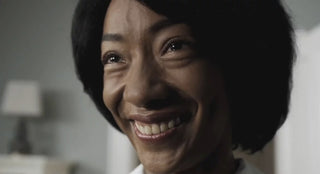“Just be yourself.” I kept repeating that to myself as I shook the hands of people I’d never met, smiling in their faces, listening to their stories that I’d surely forget within the next 12 hours. The scariest reality wasn’t that they’d outwardly judge me, but that they ‘felt’ something and wouldn’t say it. Every whisper or private conversation becomes a plot, and suddenly you feel like public enemy #1. But I have to make THEM feel comfortable—as if it’s customary. And even if history has shown again and again that it should be the other way around. The worst fear I could have as a young black man isn’t fighting the perception of what my people are, but having to always be the bigger person and see the good in people—even if that same sentiment isn’t reciprocated.
Writer/Director Jordan Peele has felt this stress, and he puts it on display in his newest movie—Get Out—which is not only a triumph in the horror genre, but one of the best movies of the past three years. Depicting the story of young, interracial lovers, Chris (played excellently by Daniel Kaluuya) and Rose Armitage (Allison Williams) and their awkward weekend away with her parents. Chris is apprehensive about meeting her white, affluent parents—and even more concerned about being alone in the woods with them for the weekend. When they arrive at the house, the Armitages seem nice—but things aren’t what they seem. Her mother (played by Catherine Keener) is a psychiatrist that specializes in hypnotism and keeps insisting that Chris let her dive into his mind (which will no doubt elicit many “hell no” responses from the audience). While her father (played by Bradley Whitford, who is at his scenery chewing best) is a neurotic sycophant who sucks up to Chris, and claims he would have voted for Barack Obama a third time if he could. They have a maid and a groundskeeper who are also Black, and act as if they are straight out of the slavery-era. As Chris, and the audience, put the pieces together—and you’ll never see this twist coming—Get Out slams you with heartbreaking reveals and some of the most crowd-pleasing violence you’ll ever see.

Get Out depicts a person of color in a vulnerable position, bare and bombarded by the unknown. The “traditional horror” aspect of the film is almost on the backburner for most of the first act—but it’s clear that Peele’s timing with jokes lends itself well to directing these scenes. The tension within the silent scenes is Hitchcockian, wasting no jump scares or fake-outs in exchange for a false scream. There’s also an element of Wes Craven and Sam Raimi during the third act when things get really messy. Peele is clearly a student of the genre, and tells a tale of two movies—where the horror is on the surface and beneath it at the same time.

What’s most interesting about the horror in Get Out, is that most of it comes from the tension of interracial relationships. As progressive as we have become—it’s still a hard conversation to have, and the movie thrusts the audience headfirst into it. It’s more frightening than a stab wound—it’s reality. I grimaced in my seat as the father asked Chris and Rose how long they had been dating, and shook my head violently at the huge dinner party set piece when a guest exclaims that being black “is in.” Peele’s writing for these scenes is comedic—and there are certainly people who will laugh—but is loaded with subtext. Subtext that only a certain fraction of the audience will understand.
Get Out is as much of a commentary on the fakeness of White “liberals” who act as allies to the cause of PoCs as it is a rally against good and evil. As stated before, their evil is beneath the surface, and just as weak. The aforementioned dinner party set piece depicts a litany of stereotypes that attempt to be soothsayers to Chris (and the audience’s) anxiety. They may hate Donald Trump, but they only begrudgingly accept minorities as equal. It’s a bone-chilling reversal of roles that takes the onus away from the tried and true hillbilly slashers of the past and into something worse: Old money and their obsession with the idea of ownership. How do you deal with an enemy who wants to BE YOU, and have all of your strengths? Peele doesn’t hesitate to point a mirror back at these people either—and I loved every fucking second of it.

Get Out scared the shit out of me. Not because of the blood, or the jump scares—but because it has happened to me (well, not ALL of it). Black people are told to always show our best face, and put our best foot forward throughout the bullshit. Get Out shows you what it’s like when you have to stand up and fight against it. Maybe next time I meet my girlfriend’s parents—I’ll check the basement.
***

